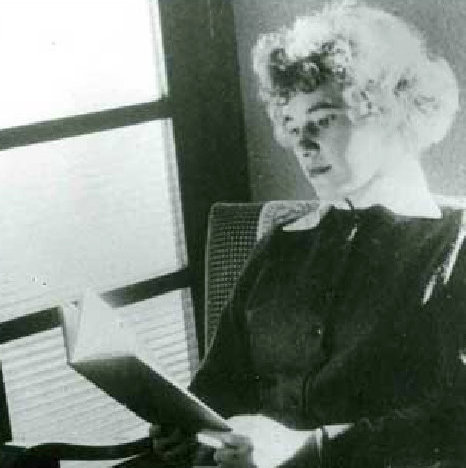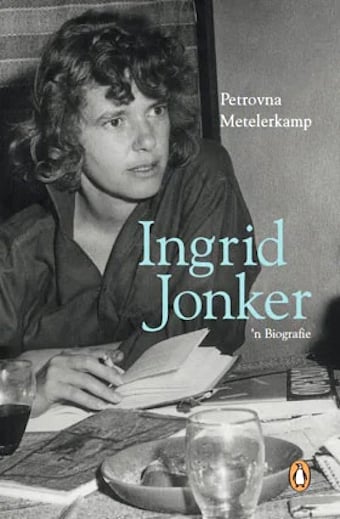Ingrid Jonker, South African Poet and Anti-Apartheid Activist
By Alex J. Coyne | On July 17, 2023 | Updated June 1, 2025 | Comments (0)

Ingrid Jonker (September 19, 1933 – July 19, 1965) was a South African poet and founder of the emerging counterculture literary movement. The daughter of a Member of Parliament for the National Party, her views and work strongly opposed the apartheid government of the time.
Jonker has been compared to some of the most iconic modern female artists and poets, including Sylvia Plath. Her poetry, written in Afrikaans, has been more recently translated into English, as well as German, Dutch, French, Polish, Hindi, and other languages.
Jonker’s poem, “The child who was shot dead by soldiers at Nyanga” was recited by Nelson Mandela on May 24, 1994, signifying the past impact and end of the Apartheid-regime.
The poem begins:
The child is not dead
the child raises his fists against his mother
who screams Africa screams the smell
of freedom and heather
in the locations of the heart under siege
(Translation: Antjie Krog & André Brink, from Black Butterflies, published by Human & Rousseau, Cape Town, 2007. Read the rest of the poem here.)
Early life and literary beginnings
Ingrid Jonker was born in Douglas, Eastern Cape, South Africa to Beatrice Cilliers and Abraham Jonker, a Member of Parliament for the National Party. She had one sister, Anna Jonker.
After being accused of an affair, Beatrice left with the children and stayed on a neighboring farm. Ingrid and Anna would spend their childhoods moving between farms owned by her grandfather, Fanie Cilliers.
Her grandfather’s death brought more change for the family, and they moved again, from Strand to Gordon’s Bay. In 1944, her mother died from cancer, and Ingrid would spend time between her father’s home and a local boarding house.
Ingrid began to find her own way from 1951, asking to leave the family home in Plumstead. She wrote from a young age, sending her first collected poetry manuscript to NB Publishers at sixteen.
Poet and literary professor D.J. Opperman noticed her work, encouraging her to press ahead with her writing even when the collection was rejected for publication.
Shortly after her move from Plumstead, she found employment at a publishing house in Cape Town, though continued to write and correspond with other literary minds.
. . . . . . . . . .

Jonker in 1956
. . . . . . . . . .
Joining the ‘Sixtiers’ literary movement
Ingrid married Pieter Venter in 1956, the same year as the publication of her debut poetry collection entitled Ontvlugting (Escape). Their daughter, Simone Celliers-Jonker, was born in December, 1957. The couple separated soon after.
In the early 1960s, Ingrid would join the Sixtiers literary movement (‘Sestigers’): a counterculture of authors, poets, and others who embraced alternative values – and rejected the Apartheid system of the time. Rook en Oker (Smoke and Ochre), her second collection of poems, published in 1963.
Ingrid’s relationship with her father, who was still a supporter of arcane values, would remain under great strain until her death.
Death at an early age
Ingrid Jonker died on July 19, 1965 by suicide, walking into the ocean at Three Anchor Bay, Cape Town. She was not quite thirty-two.
While a formal, church-run funeral was held on 22 July, her closest friends held a private memorial event three days after (July 25) that allowed for her poetry to be read against the banning orders of the time.
. . . . . . . . . .

. . . . . . . . . .
Posthumous acclaim and legacy
Most of Ingrid Jonker’s critical acclaim would take place years after her death. Remaining friends and associates would institute the Ingrid Jonker Prize for debut poetry in Afrikaans and English. The Collected Works of Ingrid Jonker, including one of her plays, was published in 1975.
As mentioned earlier, “The child who was shot dead by soldiers at Nyanga” was recited by Nelson Mandela on 24 May 1994, signifying the past impact and end of the Apartheid-regime.
In 2004, the South African government posthumously awarded Ingrid with the Order of Ikhamanga for excellence in arts, culture, literature, music, journalism and sport.
Several works have been produced about her life and death, including a 2001 documentary and the film Black Butterfly in 2011.
Contributed by Alex J. Coyne, a journalist, author and proofreader. He has written for a variety of publications and websites, with a radar calibrated for gothic, gonzo and the weird. His features, posts, articles and interviews have been published in People Magazine, ATKV Taalgenoot, LitNet, The Citizen, Funds for Writers, and The South African, among other publications.
More by Alex Coyne on this site
- Nadine Gordimer, South African Author and Activist
- 8 Essential Novels by South African Author Nadine Gordimer
- Jeanne Goosen, Author of We’re Not All Like That
- 6 Notable South African Women Poets
- The Banning of Nadine Gordimer’s Anti-Apartheid Novels
- Olive Schreiner, Author of The Story of a South African Farm
- 10 Unforgettable Books by South African Women Writers
- Ingrid Jonker, South African Poet and Anti-Apartheid Activist
- The Works of Flora Nwapa
More about Ingrid Jonker
Major Works
- Ontvlugting (Escape), 1956
- Rook en Oker (Smoke and Ochre), 1963
- Collected Works, 1975
Poems by Ingrid Jonker
Several poems by Ingrid Jonker translated into English are available online:
- “You Have Tricked Me”
- “Daisies in Namaqualand”
- “Little Grain of Sand”
- Several Jonker poems in English translation on AllPoetry.com
More Information
- Official Website
- South African Government: Ingrid Jonker
- South African History Online
- SA History
- Ingrid Jonker: A Biography (Petrovna Metelerkamp)
Learn more about classic women poets and their poetry.
Leave a Reply